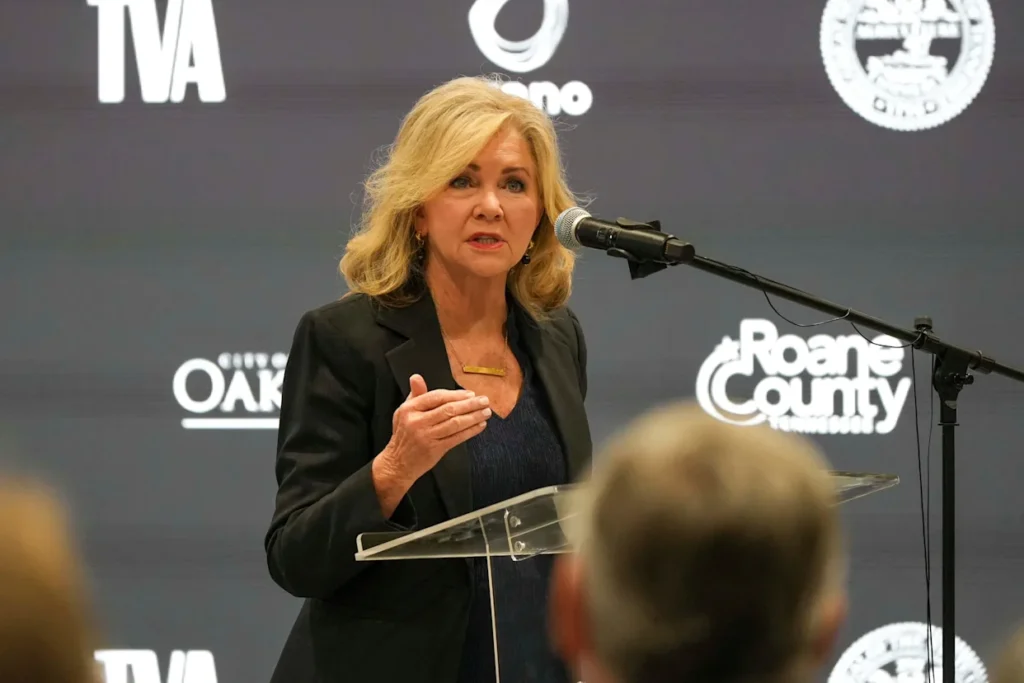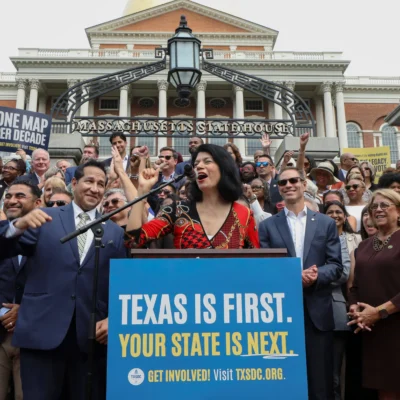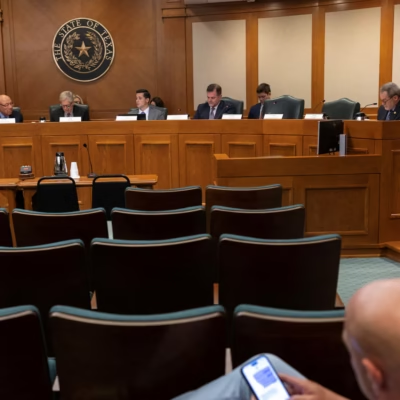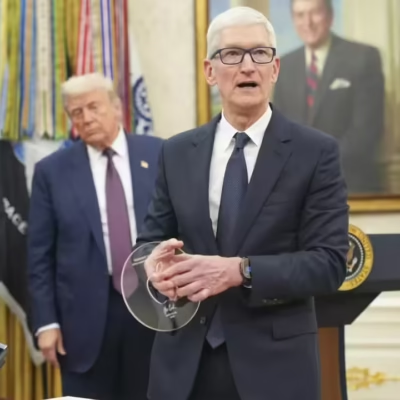Senator Marsha Blackburn has officially announced her decision to run for Tennessee governor in the upcoming 2026 election. A longtime Republican figure known for her conservative stance, Blackburn’s announcement has sent waves across the state and national political landscape.
The move marks a significant moment for Tennessee politics. With current Governor Bill Lee stepping down after his second term, the race is expected to draw intense attention from both major parties. Blackburn’s entry into the gubernatorial race brings experience, name recognition, and a loyal voter base, all of which could shake up the early dynamics of the election.
Let’s take a deeper look at what this means for Tennessee and why Marsha Blackburn is making this move now.
Who Is Marsha Blackburn?
Before diving into the political strategy, it’s helpful to understand who Marsha Blackburn is.
Marsha Blackburn is currently serving as the senior U.S. Senator from Tennessee, having been elected to the Senate in 2018. Prior to her time in the Senate, she served in the U.S. House of Representatives for Tennessee’s 7th Congressional District from 2003 to 2019.
Throughout her political career, Blackburn has built a reputation as a strong conservative, often aligning herself with former President Donald Trump and promoting values such as limited government, lower taxes, and a strong national defense.
She has also been an outspoken voice on issues like:
- Border security
- Second Amendment rights
- Opposition to abortion
- Supporting law enforcement and military veterans
With more than two decades in Washington, Blackburn has national experience and a powerful network of supporters. But now, she wants to bring her leadership back home to Tennessee.
Why Is Marsha Blackburn Running for Governor?

Blackburn’s announcement to run for Tennessee governor didn’t come out of nowhere. According to her campaign team, the senator believes Tennessee needs strong, experienced, and unapologetically conservative leadership at a time when many states are struggling with inflation, border issues, and federal overreach.
In her official statement, Blackburn said:
“Tennessee is my home. It’s where I raised my children, built my business, and served my community. I’m running for governor because I believe in our state’s future, and I want to ensure that Tennessee remains a place where freedom, faith, and opportunity thrive.”
Blackburn’s team also emphasized that her experience in Washington will help Tennessee resist what she calls harmful liberal policies from the federal government.
What Does This Mean for the 2026 Gubernatorial Race?
With Governor Bill Lee term-limited, the 2026 Tennessee gubernatorial race was already expected to be competitive. But Blackburn’s entry changes everything.
Key Implications:
- High name recognition: Blackburn is already a household name in Tennessee politics.
- Strong Republican base: She enjoys broad support among conservatives and likely has the early edge in a Republican primary.
- National attention: Her high-profile run will attract national media coverage, campaign donations, and possibly endorsements from big-name Republicans.
- Crowded primary field: Other Republican hopefuls may now think twice before entering the race or may have to reconsider their strategy.
On the Democratic side, there’s no confirmed candidate yet, but Blackburn’s candidacy could push state Democrats to unite early and find a strong challenger.
What Are Her Top Campaign Priorities?
According to her campaign website and recent interviews, Blackburn’s run for Tennessee governor will focus on a few key areas.
Public Safety
She has been vocal about defending law enforcement and wants to increase funding for local police, improve emergency response systems, and implement tougher penalties for violent crimes.
Education Reform
Blackburn is pushing for more school choice, parental involvement in school curricula, and greater accountability in public education systems.
Economic Growth
She plans to attract new businesses to Tennessee through tax incentives, reduce regulatory burdens, and invest in rural infrastructure.
Border Security (State-Level Action)
While border policy is a federal issue, Blackburn wants to use state resources to help border states and protect Tennessee from drug trafficking and illegal immigration.
Healthcare Access
Though she opposes universal healthcare, Blackburn supports expanding rural healthcare access and reducing healthcare costs through private sector innovation.
What Do Tennesseans Think?
Reactions to Marsha Blackburn’s announcement have been mixed, as expected.
Supporters say:
- She’s a proven leader
- She’ll stand up against federal overreach
- She represents traditional Tennessee values
Critics argue:
- Her time in Washington has made her too partisan
- Tennessee needs a governor focused more on local issues than national politics
- Her policies may not address the needs of all Tennesseans, especially in urban areas
Early polling data will soon reveal where she stands among likely voters. Still, her ability to raise funds and rally the Republican base makes her a serious contender.
What Happens to Her Senate Seat?
This is a key question. If Blackburn wins the governor’s race in 2026, she will need to vacate her Senate seat, which doesn’t officially end until January 2029. This opens up another major political opportunity.
If she resigns before the end of her Senate term, Tennessee’s governor will appoint a temporary replacement, followed by a special election.
Some speculate this move could help other Tennessee Republicans advance their careers, especially those eyeing federal positions.
The Bigger Picture: A Shift in GOP Leadership?
Marsha Blackburn running for Tennessee governor is more than just a personal career move. It could signal a larger shift in Republican leadership in the South.
If elected, she could:
- Influence conservative policymaking on a national scale
- Set the stage for a future Vice Presidential or Presidential bid
- Push Tennessee further to the right politically
Blackburn has always been a sharp communicator, and her presence in the Governor’s Office would likely amplify conservative voices across the country.
What Are the Challenges Ahead?
Despite her strengths, Blackburn will face several hurdles on the road to the governor’s mansion.
Primary Opposition
Other Republicans may still enter the race, including local leaders, mayors, or business executives who appeal to moderate conservatives.
Changing Demographics
Tennessee’s urban centers like Nashville and Memphis are growing and tend to vote Democrat. Winning statewide means appealing to both rural and urban voters.
National Controversies
Blackburn has made headlines in the past for controversial statements, especially around topics like tech regulation, abortion, and impeachment hearings. These could resurface and hurt her campaign.
Timeline: What’s Next?
Here’s what to watch for in the coming months:
- Late 2025: Official candidate filings begin
- Early 2026: GOP primary debates and events kick off
- Mid-2026: Republican and Democratic primaries held
- November 2026: General election for Tennessee Governor
Between now and then, expect heavy media coverage, campaign ads, town halls, and policy proposals from all candidates.
Final Thoughts
Senator Marsha Blackburn’s run for Tennessee governor is one of the most significant political moves in the state in recent years. Her candidacy brings years of experience, a strong political brand, and national attention to the 2026 race.
Whether you support or oppose her platform, one thing is clear: her decision is reshaping the landscape of Tennessee politics and possibly the future of the Republican Party in the South.
Do Follow USA Glory On Instagram
Read Next – Obama Slams Texas GOP Redistricting Plan as ‘Power Grab’






